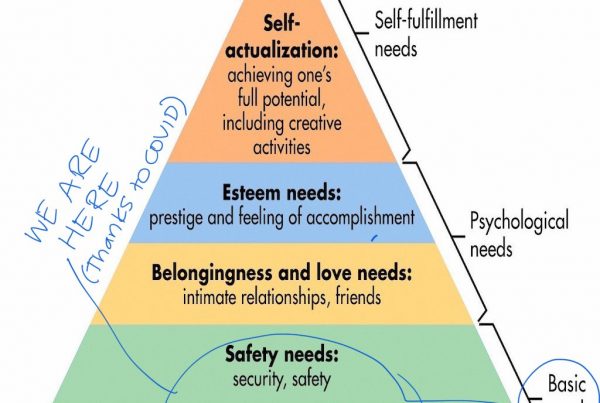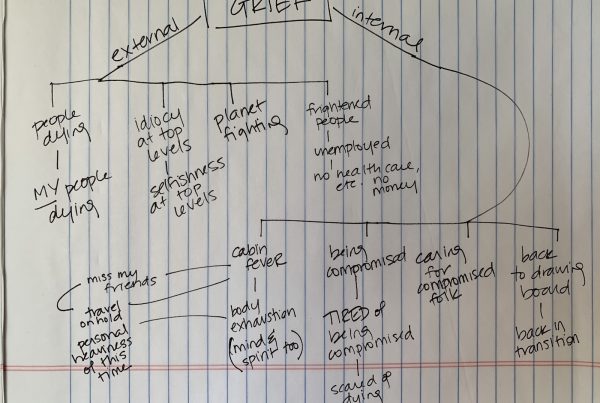Cancer causes death. But the funny thing about death is that it is truly only a problem for the living. I don’t want to die, but if I do, it’s not really my problem. And, as my husband says, it’s such an awful possibility that it almost doesn’t make any sense for those who love me.
Chemo impacts fertility. I’m 33, married, and have always known that children would be part of our lives. I don’t crave children; I just assumed that I would spend my late 30s and beyond having family dinners and going to soccer games with children who reminded me of myself or my husband. Biological children were simply a natural part of my future. We had a vague timeline for them, always with the thought that we would be “older” parents, but nothing firm.
And then I got cancer. And I chose chemotherapy as a way to save my life. Something that I chose to do to myself in order to save my life could take away my ability to see my eyes or nose or ears or flash of sarcastic wit in my child. I’m not sure that this makes any sense to me. Mentally it makes plenty of sense. But emotionally? I’m not there. And I don’t know if I ever will be. Which is why talking or writing about this issue has been outstandingly difficult for me to do. Because I did this to myself. By choice. Breaking down that view of my life that includes children that look like me is too real, too painful, too close to the bone to handle.
On the walk from my cardiologist to my oncologist in late July, I picked up a voicemail from an unknown hospital number.
“Hi Lydia, it’s Nurse from Dr. Fertility’s office. Your ultrasound and labs from this morning continue to show little progress on egg maturity, and its been 10 days since you started the protocol, so I’m afraid that this just isn’t working. Please stop the meds and one of the doctors will be in touch.”
I stopped dead in the middle of the street, and my mother turned to me with questions in her eyes.
“The fucking nurse from the fucking fertility people just told me in a fucking voice mail that the egg stimulation fucking failed. Are you fucking kidding me?”
We kept walking while I called my husband.
“Sweetie, you can’t be infertile, you’ve only gone through one round of chemotherapy.”
“Then why didn’t it work?” Sobs began to choke my voice.
“I don’t know. Where are you?”
“Heading to the clinic for fluids.”
“I’ll meet you there.”
When I found out on June 28 that I had a 12cm by 6cm tumor in my chest, life blurred. The tumor was pushing on my heart, causing shortness of breath. It had also strangled my superior vena cava, which in turn caused severe swelling throughout my face, neck, and arms. Ten days after I saw my normal doctor and she heard something strange with my heart, I started the aggressive chemo regime for non-Hodgkins lymphoma called R-EPOCH. My tumor had grown so quickly that my doctors did not want me to delay treatment for the 14-21 days that it would take to harvest my eggs, despite my increasing panic about how quickly everything had gone, let alone the possibility of my being infertile.
Three days into my first hospital stay, I got a call from the onco-fertility coordinator asking if she could swing by my room to explain how to protect my fertility from the chemotherapy. For what felt like the 100th time in those three days, I said “of course, come by, we’re here,” when all I wanted to do was to tell her to go jump off the nearest roof. She walked into my room and visibly swallowed. No one in the hospital did a good job of containing their shock and pity to find a young person with cancer sitting in my bed.
First, she educated us:
1. What happens: Cyclophosphamide (the C in EPOCH) will “age” my ovaries. I’m 33. My mother went through menopause in her late 40s, so if my ovaries age by only a couple years, then I’m all set. More? We’re running into problems.
2. Options: a) egg harvesting; b) surgically removing an ovary and freezing it and then waving a magic wand over it to somehow produce an egg that could maybe turn into my baby; and/or c) shots of Lupron, a drug that shuts down my ovaries, theoretically protecting them from the onslaught of chemotherapy.
3. Statistics: this regime only causes infertility 3-5% of the time. Which is a useless figure to me. Who were those 3-5%? How old were they? Did their mothers go through menopause in her late 40s? Did they survive on a steady diet of Twinkies or kale? Does that even make a difference?
4. More statistics: frozen eggs produce a baby 4% of the time. Frozen embryos produce a baby 50% of the time. My husband and I love each other dearly, but if he gets hit by a bus or something, and I only have embryos with his name on them, do I have those babies? Clearly this is a question for multiple therapy sessions, but we had about five days to figure out how we wanted the document to read. No pressure or anything.
We decided to do the egg harvesting in the 16 day break between rounds one and two. Once that was complete, I would then start Lupron and just cross my fingers until everything was done and out of my system sometime in February. Hopefully.
Sounds pretty straight forward, right?
I got home from round one on July 12. On July 13 (yes, that was a Friday, the irony does not elude me) I met my fertility doctor for the first time and started the shots designed to freak out my ovaries until they produced lots of eggs. My body was in the middle of a mutiny: on July 13, I weighed 118 pounds. Two weeks earlier, I weighed a healthy and slender 125.
On July 14, I began having a full body allergic reaction to one of the drugs designed to help my body process the dying tumor. Resolved that by July 17. On July 18, I experienced for the first time something called “bony pain,” a problem caused by Neulasta when bone marrow expands too much inside one’s bones (yes, it hurts, A LOT). This landed me in the hospital for two days so they could inject me full of Dilaudid, an opiate ten times more potent than morphine. Released on July 20. And through it all, I kept taking my fertility shots and getting ultrasounds and labs.
Fertility medication comes in tiny syringes with short little needles. I was supposed to take these little syringes (I hate needles, by the way) and inject them into the fat in my belly or thighs. This process got more and more painful as I dropped more weight and struggled to find fat for the injection site. Lucky for my husband, this was his job, and all I had to do was to breath deeply while the tears rolled down my cheeks. Yes, we also did this while I was doped up on Dilaudid in the hospital. Ironically, the shots didn’t hurt less.
Also, every few days, I had to go to the fertility clinic and have labs drawn and get a vaginal ultrasound. The techs there couldn’t draw blood out of my PICC line, so they poked my poor, abused veins to get what they needed. Vaginal ultrasounds are the product of men making decisions about women’s health equipment. Sure, let’s take a dildo, cover it with a condom, squirt some lube on it, shove it on up, and then move it around in order to look at each ovary. That sounds like a brilliantly HORRIBLE idea, but that’s what a vaginal ultrasound is. Luckily, maybe, my lab/ultrasound schedule nicely straddled my two days in the hospital. I walked back to the fertility clinic on the day after I got out of the hospital for lab/ultrasound in a daze, tacking back and forth along the sidewalk until I found the revolving door to my own personal hell.
On July 25, I got the voice message from the fertility nurse telling me that “it’s not working.” I had also, by that point, dropped to 113 pounds.
That day, my oncologist wandered into the clinic while my mother and husband watched me getting fluids.
“How are you?”
Blank, confused, overwhelmed. “Feeling fine, but I got an upsetting voice message from the fertility nurse telling me that ‘it’s not working.’ What does that mean? Am I infertile?”
“No, it absolutely does not mean that. Your body has been through hell in the last three weeks, and your systems are probably just prioritizing which medications to allow to do their thing. Plus you’ve dropped so much weight. I wouldn’t be surprised if your ovaries were simply in shock about the whole thing.”
“Have you had a patient before where this didn’t work but she was still fine and happy and pregnant?”
“Yes, multiple patients.”
I finished chemo on October 26. Lupron will clear my system by February 1. After that, I simply wait for my period to show up. And pace. And wait.
Photo by Rebekah Howell on Unsplash



Thanks for the insightful entry. I too thought I could have a baby after I finish this crappy treatment and get back to my old life.Only to find out what saved my life took away the choice of having a baby. I asked the doctor for a year when my period would show up and even got angry for days at my selfish ex husband for not wanting any…I would swing from anger to jealousy when I would see a fellow survivor pregnant and I could not..So my options are to adopt one when I finally meet a decent man to marry. Or I tell God could I be a Sara she was well into her 100’s when God blessed them with a son…One can always still ask God for a miracle Right…And these days people live well into their ninetys..
Happy turkey day.
Lorraine Konon aka Princess K